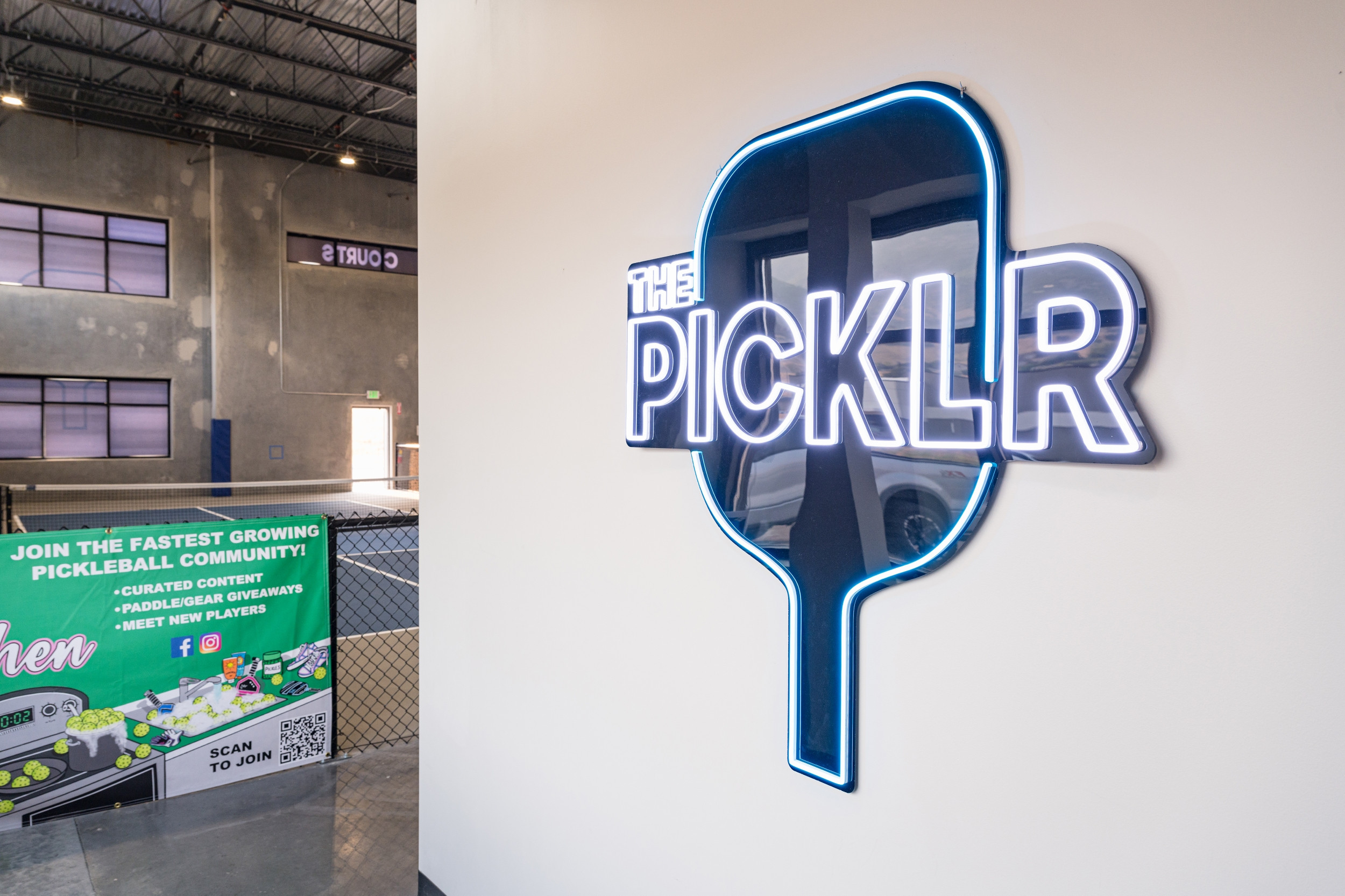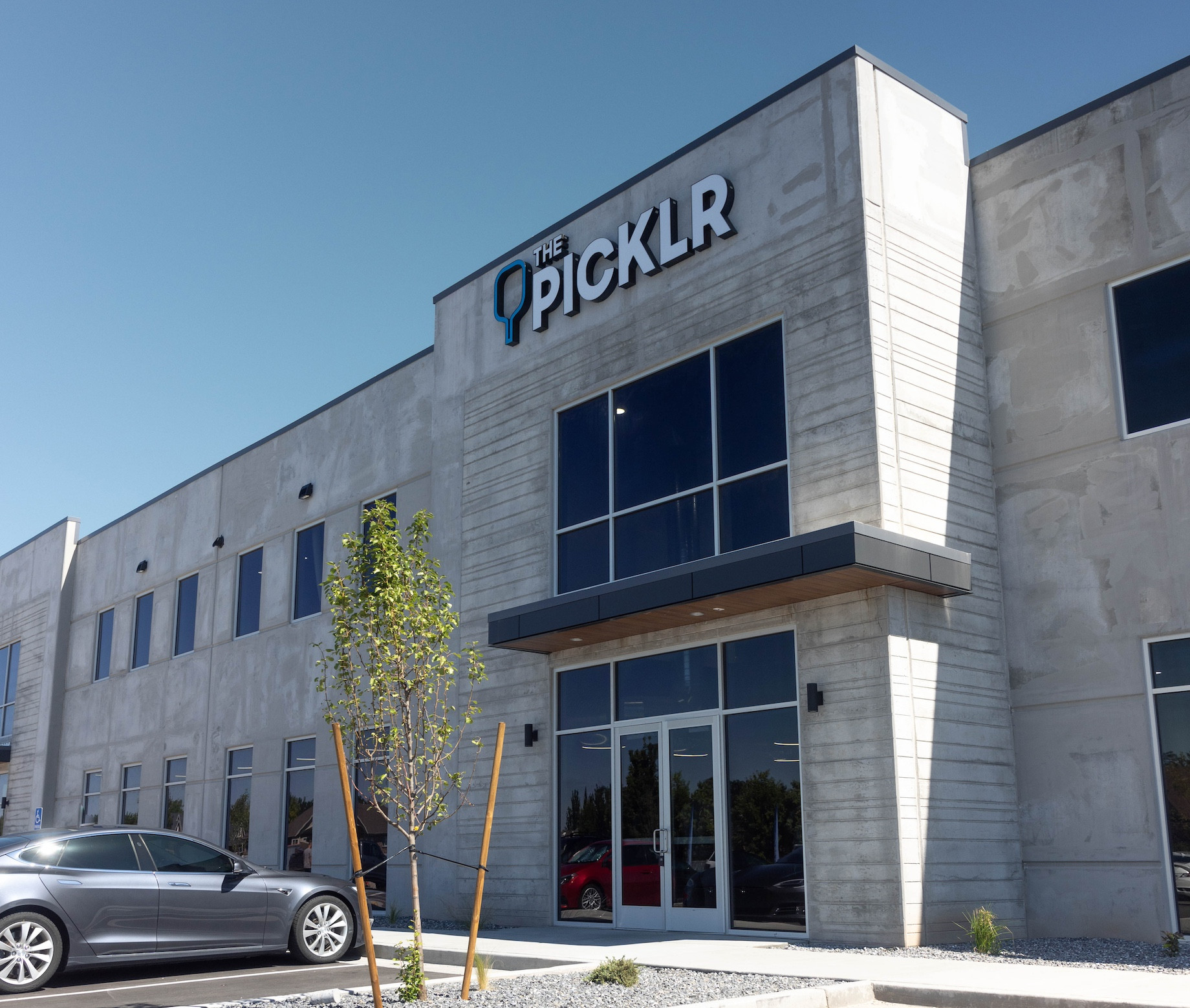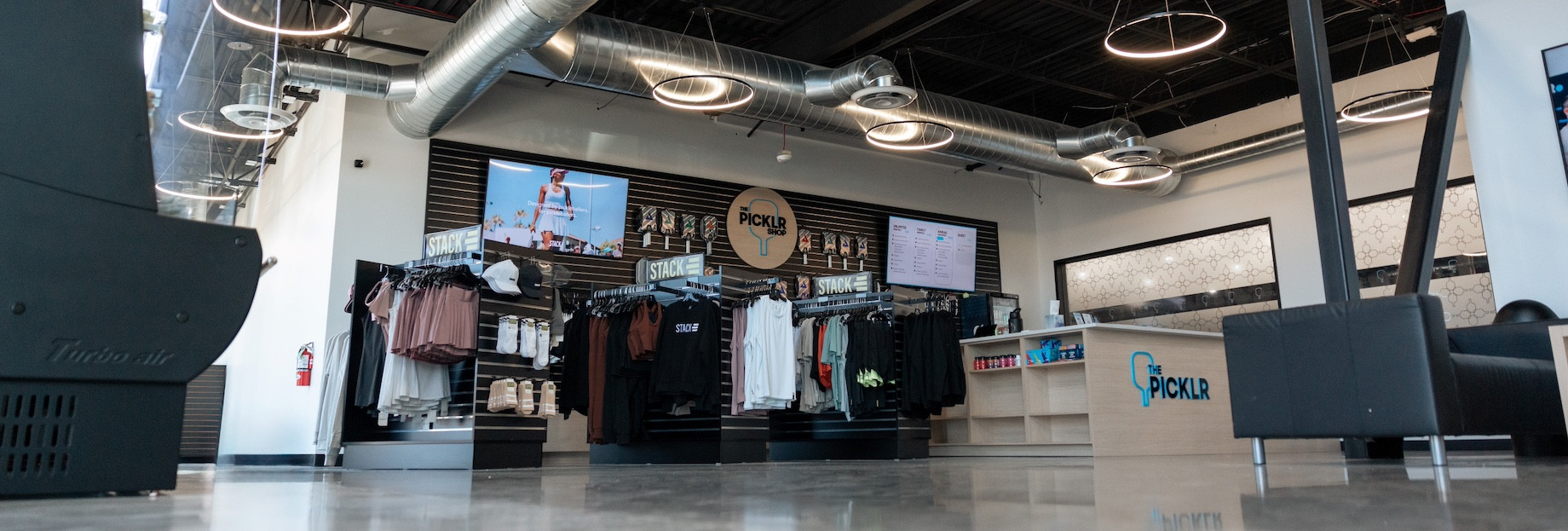The Picklr has opened seven corporate-owned facilities in Utah and Colorado over the past three years. Now, the pickleball concept is expanding nationwide through aggressive franchise growth.

The name derives from a term for a pickleball fanatic: a “pickler.”
By the end of 2023, it will have seven facilities open, five under construction and 10 new leases signed. Its pipeline numbers 110 locations reaching one-third of U.S. states, having announced 80 new franchises in September and 30 in October. The latest announcement means the high-end pickleball facilities are on their way to North Carolina, South Carolina, Tennessee, Virginia and Washington, D.C. The plan is to have 300 franchise locations sold by the end of 2024 and 500 in the next few years. The Picklr also is reviewing plans for international expansion, which would start next year.

The Picklr is on track to have more than 300 franchise locations sold across the U.S. by the end of 2024 and aims for 500 in the next few years. Pictured is its flagship, a purpose-built facility with 15 courts in the company’s hometown of Kaysville, Utah.
“We have our seven corporate stores so that we could feel very comfortable proving the model and franchising,” said co-founder Austin Wood. “We always wanted to franchise, but we never felt that we could really offer value to our franchisees unless we at least had a good grasp on the answers and were willing to continue to be innovative, to continue moving forward. Now that we have those corporate stores and we have the team in place [and] we have the infrastructure in place to support franchises, we will be focused as a franchise organization moving forward.”
FROM THE ICSC SMALL BUSINESS CENTER: Help Prospective Franchise Tenants
So You Want to Grow Through Franchising
Expanding a Small Business by Franchising: Consider These Questions
3 Critical Questions for Prospective Franchise Buyers
Protecting Franchisees: Examining the Challenges and Calls for Regulation
The Origins of Pickleball and The Picklr
Pickleball was invented in the mid-1960s when families were looking for an activity to entertain their children while on vacation in Bainbridge Island, Washington. As the parents gathered equipment from a garage, including pingpong paddles and a whiffle ball, they noticed a nearby badminton court. The sport’s unusual name refers to the pickle boat in crew powered by rowers assembled randomly from those available.
According to the Sports & Fitness Industry Association, participation in pickleball nearly doubled last year, the third year in a row in which it was the fastest-growing sport. Patrick Mahomes, Naomi Osaka and Tom Brady are among the famous athletes who’ve invested in Major League Pickleball teams.
As for The Picklr, Wood and co-founder Jorge Barragan were friends in high school. In 2018, about 10 years after graduation, they fell in love with pickleball, even playing in tournaments together. “The problem that we saw right out of the gate is that there really wasn’t a place you could book and play two hours,” said Wood. “That is where the initial talk started.” They put together a business plan in December 2020 and launched The Picklr brand the next month, named after fanatics of the sport, which are called “picklers.” The company signed its first lease in April 2021. “Really what we wanted to do is create a place where people could connect, compete and have a lot of fun, and that’s where our three pillars came from of connect, dink, compete,” said Wood. “We use the word dink in place of the word fun because that is a pickleball term.”
What They’re Looking for in a Space
The pair’s plan was to leverage economies of scale and develop a large number of locations, as its competitors are predominantly mom and pop operations with one or two facilities. To test sites, they opened corporate stores in different types of locations, from industrial to flex to second-generation retail. “We used those seven locations to really test what we were looking for and what we wanted because this is a brand-new industry and we needed to really learn and figure out and make mistakes along the way so that we could find the right solution before we ever franchised,” said Wood.
Flex industrial space proved not to be ideal, given the need for population density, but second-generation retail has been working out. “There are a lot of places closing across the country like Bed Bath & Beyond and Buy Buy Baby, and we really felt there was a great niche for us,” said Wood. Those locations are already equipped with HVAC and bathrooms and require only remodeling without building from the ground up.
The Picklr wants eight to 12 courts per typical location, which requires around 25,000 to 35,000 square feet. Larger spaces are also an option depending on the market and the quality of the demographics. “We wanted to bring in a more elevated brand that would be for all ages but also focus on the younger generation,” said Wood. The top demographic for pickleball has been trending younger over the past few years and currently stands at 18 to 30. “We think it is going to go even younger. That is really where we positioned our brand, around that mindset that we wanted to not be a cheesy pickleball company,” he said, referencing the corny shirts and paddles that made light of the sport’s name as pickleball first started to gain traction a few years ago.
Recently, the company signed a lease for 27,333 square feet to build a 10-court store in Continental Realty Corp.’s 241,000-square-foot Fox River Commons in Naperville. It will be the concept’s first Chicago-area location when it opens in 2024. The property checked all the boxes in The Picklr’s analysis of local and regional demographics and of the competition. “We are intrigued by the current and expected population growth, the strategic location and access to major highways, the site’s roadside visibility and the large parking field,” said Wood. “We expect many more to follow in the greater Chicago area.”
The Picklr also benefits its neighboring tenants. Continental Realty COO David Donato said: “The Picklr adds something new to Fox River Commons’ mix of retail and recreational offerings. They have been running pickleball programs for years and have an established program that will bring recurring visits to the shopping center.”
What The Picklr Offers Franchisees, Customers and Landlords
“[We] design and construct venues at considerably lower costs than our peers because we purchase materials at bulk, and we pass these savings on to our franchise owners,” said Wood. “Every facility features top-of-the-line court surfacing that is engineered not to crack after continued use, the highest-quality netting materials, player-friendly lighting systems that do not interfere with play and acoustics that dampen the sounds from nearby courts and provide the optimal player experience.” He stated: “While other pickleball groups are leasing space in second- or third-generation warehouses and are not investing fully in upgrading facilities for this specific use, we are custom-designing each location using proven protocols.”
The Picklr also offers a holistic brand that helps its franchisees succeed. It runs an online store, created a pickleball apparel brand called Stack Athletics and owns a Minor League Pickleball team. Picklr Academy provides hands-on and next-level training for youngsters and adults with a focus on shot-specific drilling and gameplay training,” Wood added. “We are definitely very entrenched in the sport in every facet, so I like to say we are the most vertically and horizontally integrated pickleball company out there.”

Each Picklr location features a pro shop stocked with clothing and accessories.
The concept offers private court reservations, drop-in play, leagues, tournaments and private lessons instructed by a team of certified professionals, as well as private parties and business events. The company’s app enables league registrations, court reservations and lesson sign-ups. The Picklr separates activities into men’s, women’s, co-ed and youth categories in a range of skill levels. Additionally, membership gives players access to other Picklr venues across the country.
“Everything we do is geared toward attracting more people to the sport of pickleball,” said Wood. “Our strategy is to grow fast but to grow right, to find great locations and great franchise partners,” he said. “We do say no to the people we don’t feel are the right fit for us as an organization, so we are very cautious of who can become part of this brand.”
Seizing the Opportunity — Carefully
Wood believes the sport’s growth is just beginning, but he also knows explosive growth comes with a need to move forward conscientiously. “There have already been locations that have opened and closed because they bit off more than they can chew and they didn’t understand how much work and how much that is needed to be involved to make it successful,” he said. “The reason pickleball is so great is it is a community sport. It has a social aspect, but if you open a pickleball facility thinking that people will just come because there are courts in a warehouse, that will not work. That is why we put so much time and focus into investing in the community of the game and why we are growing so fast. We focus on what is important in pickleball, which is community first. We are not just putting courts in a warehouse and hoping people will come.”
Barragan added: “The rapid growth of The Picklr franchises is a testament to the incredible demand for a top-tier pickleball experience. We're not just expanding our footprint. We are creating a movement.”
By Ben Johnson
Contributor, Commerce + Communities Today